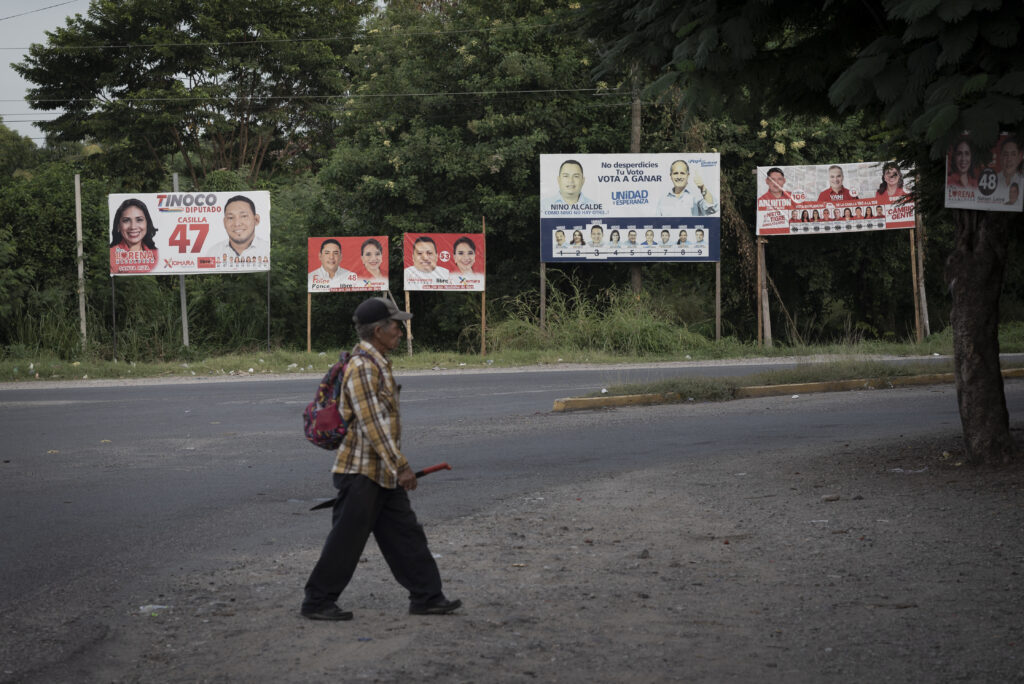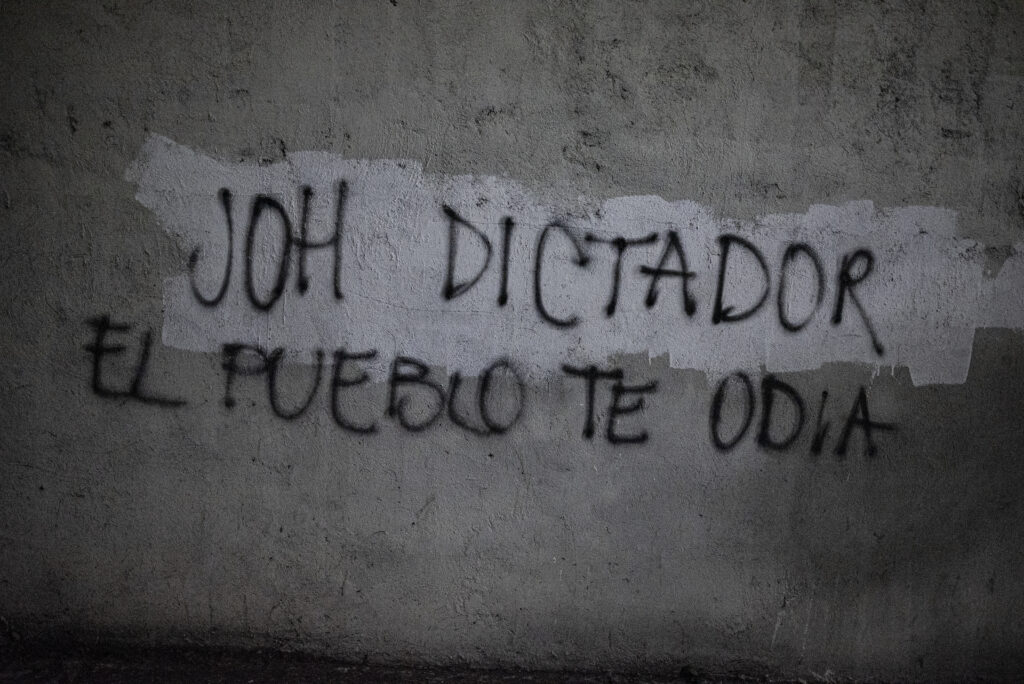
Tegucigalpa - Honduras is one of the nations hardest hit by poverty, violence and climate change in Central and South America; however, the country belonging to the so-called "Northern Triangle", will have the opportunity to change its future in democratic terms and set a trend in the region on November 28, when Hondurans go to deposit their most valuable right in the elections: the vote.
The bulk of the population in Honduras hopes that the November elections will mean a genuine change of government and that, with it, the necessary opportunities will come so that no one else will have to leave in search of a better fortune, taking risks in one of the most dangerous migratory corridors on the continent.
However, it is complicated for Hondurans to believe in the institutions and that their decision will be respected, after Juan Orlando Hernandez Alvarado, the current president, was re-elected in the 2017 elections, which have been called fraudulent due to records that the system reported just over 600 crashes, giving him the victory again.
Hundreds of graffiti on walls all over Tegucigalpa echo "JOH Out," a slogan that demands Hernández Alvarado's departure, not only because he is accused by New York prosecutors of drug shipments and embezzlement of U.S. aid funds, but also because he has plunged the country into a maelstrom of poverty, inequality and lack of opportunity.
According to the Latin American Strategic Center for Geopolitics ?Celag? there is a daily average of between 10 and 11 murders in a country of approximately 10 million inhabitants, which shows the violence that is experienced in one of the main senders of emigrants to the U.S., a fact that is not far removed from politics.
Thus, Councillor Rixi Moncada, of the National Electoral Council (CNE), an institution created in 2019 and which will be in charge of these elections for the first time, assured that the current political violence is the result of the coup d'état that worsened in 2013 and continued with that course in the 2017 elections, where at least 22 young people were killed with official bullets.
"If there is violence that is verified by state institutions, it is clear that the germ of violence is magnified at the level of the neighborhood, the colony, the village or hamlet. Violence only generates violence, and does not require additional research, it is like that throughout history," he said.
For this reason, he stressed that the November elections will be "the most important of the next decade" in Honduras.
He also specified that, in order to achieve elections of true change, the Council administers, organizes and guarantees to be able to arrive on election day with the electoral material in each of the polling stations, despite the fact that conditions in the country are "quite complex".
When questioned about whether these will be clean elections, the councilor stressed that "formally yes", since "the full councilors have worked with hundreds of obstacles these two years and a month, to have an electoral process different from that of 2013 and 2017".
Marco Castillo, co-director of the nonprofit Global Exchange, said Honduran society has lived under siege by state violence and organized crime, as well as increasing poverty, since the 2009 coup, resulting in "proven corrupt governments with possible ties to organized crime that are reluctant to allow free elections.
In view of this, Honduran society is demanding free and transparent elections next November, which, if respected, could represent an opportunity to change the life of a society in crisis at its roots.
The rubble after the coup d'état in Honduras

Rixi Moncada said that "to guarantee that in 18,000 polling stations the will of the people will be fully and neatly administered, we will see on election day," because, she explained, this country is "collapsed after the coup d'état.
"It is a state that has formal authorities, that has constitutional institutions, that has buildings and appointed officials, but it is a state without justice and it is a state where formally guaranteed rights, in practice are a real tragedy," he stressed.
The main challenge, with just over a month before the general elections take place, is that in the more than 18,000 polling stations there should be at least one electoral suitcase, the ballots for the three levels of elections, a polling station integrated in the manner established by the new Honduran electoral law, and that, afterwards, "the members of these stations should assume their historic responsibility to their communities, not just to a central body".
According to the director of the Center for the Study of Democracy in Honduras ?Cespad? Gustavo Irías, from December 2020 to date there have been 20 candidates for various positions murdered, a figure that doubles the numbers recorded in the 2017 elections, which accounts for the violence that is lived in the face of a little more than five million people to cast their suffrage.
This political violence, he said, while it is true that it has a long history in the country, has deepened since the coup d'état, which left nothing but misery and constant fear of human rights violations, as well as a country in defenselessness and without the rule of law.
Therefore, these elections, said Irías in an interview, "are the great historic opportunity for Honduran society to be able to make effective a change in the authoritarian regime, to be able to recover the democratic setbacks, the rule of law, restore human rights and to have an opportunity to open the way to push for a series of significant reforms, which are more than necessary to address the multiple crises that the country is experiencing.
Just Wednesday, October 14, in order to strengthen the opposition to the National Party regime, which for these elections appointed Nasry Juan Asfura Zablah, better known as "Tito Asfura" or "Papi a la Orden", the presidential candidates of the Salvadoran Party of Honduras (PSH), Salvador Nasralla, and of the Liberty and Refoundation Party (Libre), Xiomara Castro, decided to form an alliance a little over a month before the general elections are held.
Thus, Nasralla abandoned his race for the presidency, and has joined Castro's campaign to "get rid of this dictatorship" and "recover peace, justice and equality.
In the November elections, to which more than 5.1 million citizens of Honduras are summoned, will also elect three designated "vice presidents", 298 municipal mayors, 128 deputies to the local Parliament and 20 to the Central American.
It should be noted that after the passage of hurricanes Eta and Iota in November 2020, the country registered damages that compromise social development and economic growth, as they left at least 3.5 million people affected and half a million internally displaced; in addition to an impact of about 40 percent of GDP, so these elections could be a restart in all senses for Honduras.
You may be interested in: Resonances in the cultural sphere of the 2009 coup d'état in Honduras


